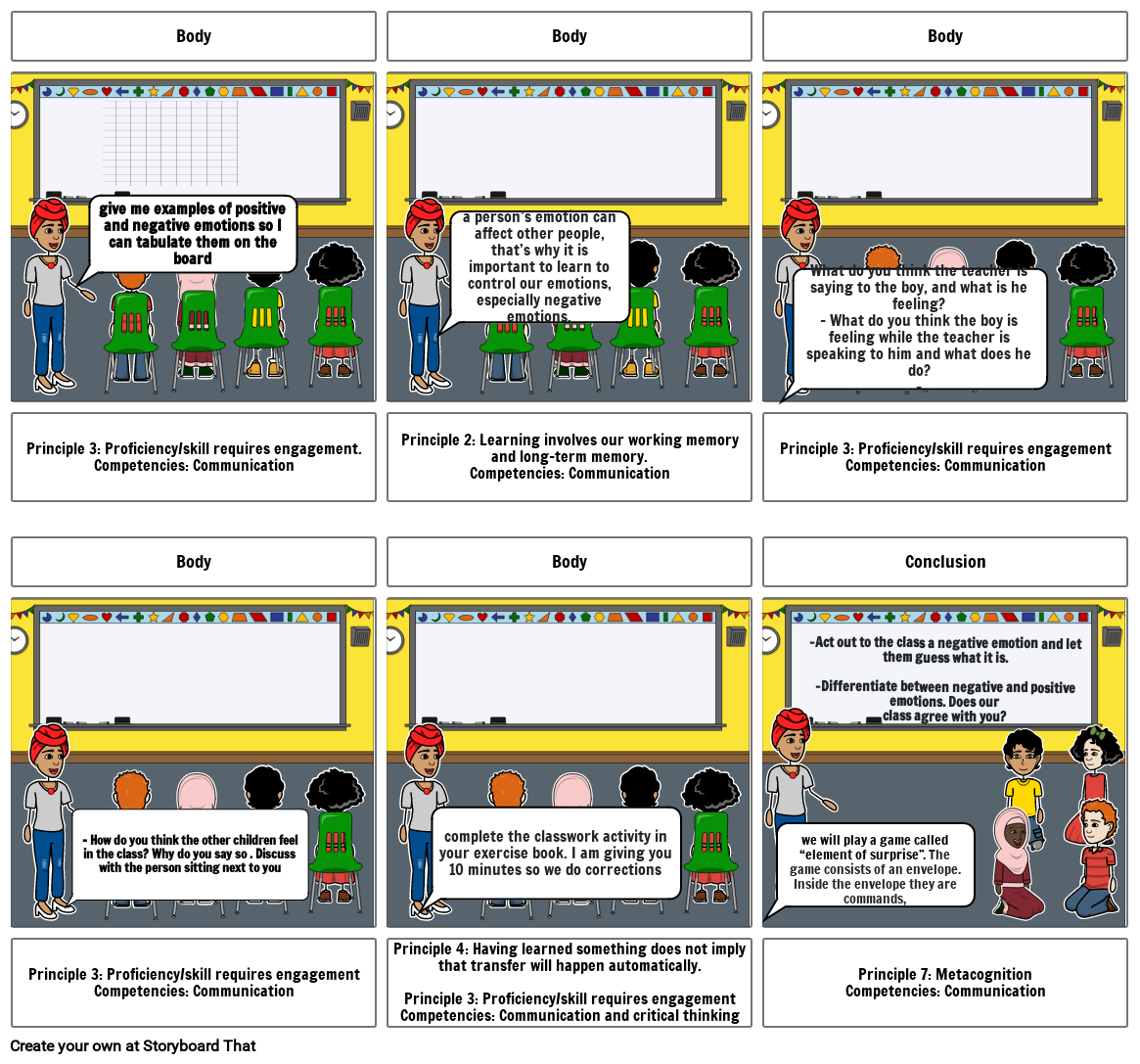Lesson design

Storyboard Text
- Body
- give me examples of positive and negative emotions so I can tabulate them on the board
- Body
- a person’s emotion can affect other people, that’s why it is important to learn to control our emotions, especially negative emotions.
- Body
- What do you think the teacher is saying to the boy, and what is he feeling? - What do you think the boy is feeling while the teacher is speaking to him and what does he do? -
- Principle 3: Proficiency/skill requires engagement.Competencies: Communication
- Body
- Principle 2: Learning involves our working memory and long-term memory.Competencies: Communication
- Body
- Principle 3: Proficiency/skill requires engagementCompetencies: Communication
- Conclusion
- -Act out to the class a negative emotion and let them guess what it is.-Differentiate between negative and positive emotions. Does our class agree with you?
- Principle 3: Proficiency/skill requires engagementCompetencies: Communication
- - How do you think the other children feel in the class? Why do you say so . Discuss with the person sitting next to you
- Principle 4: Having learned something does not imply that transfer will happen automatically.Principle 3: Proficiency/skill requires engagementCompetencies: Communication and critical thinking
- complete the classwork activity in your exercise book. I am giving you 10 minutes so we do corrections
- we will play a game called “element of surprise”. The game consists of an envelope. Inside the envelope they are commands,
- Principle 7: Metacognition Competencies: Communication
Over 30 Million Storyboards Created
No Downloads, No Credit Card, and No Login Needed to Try!
